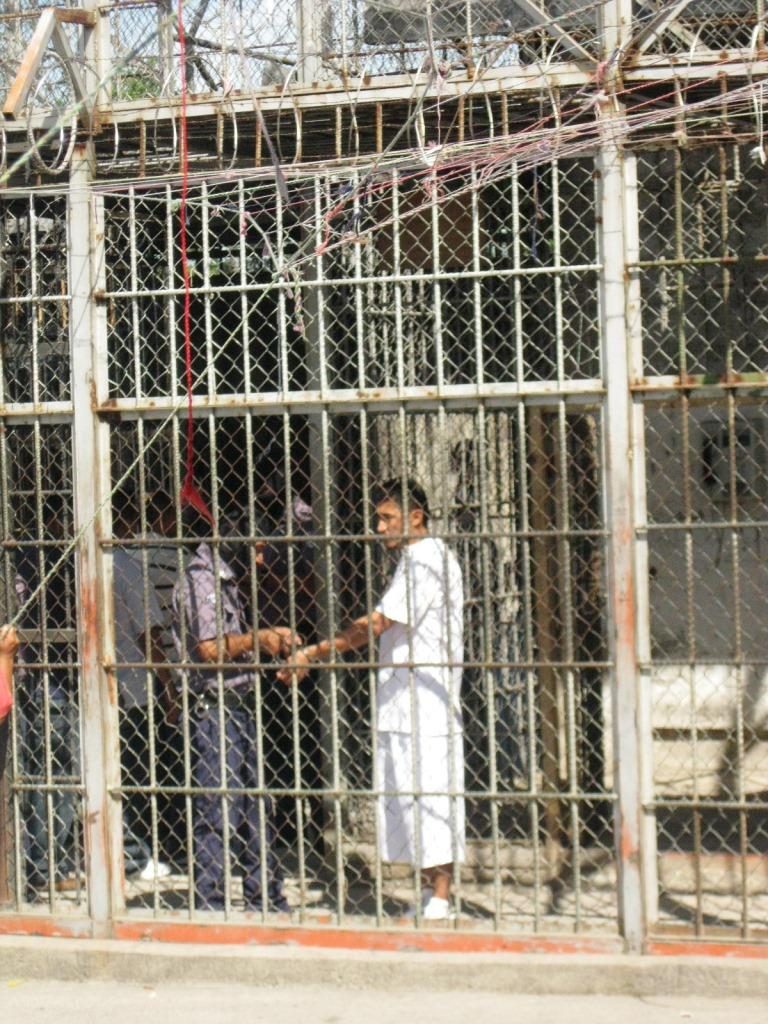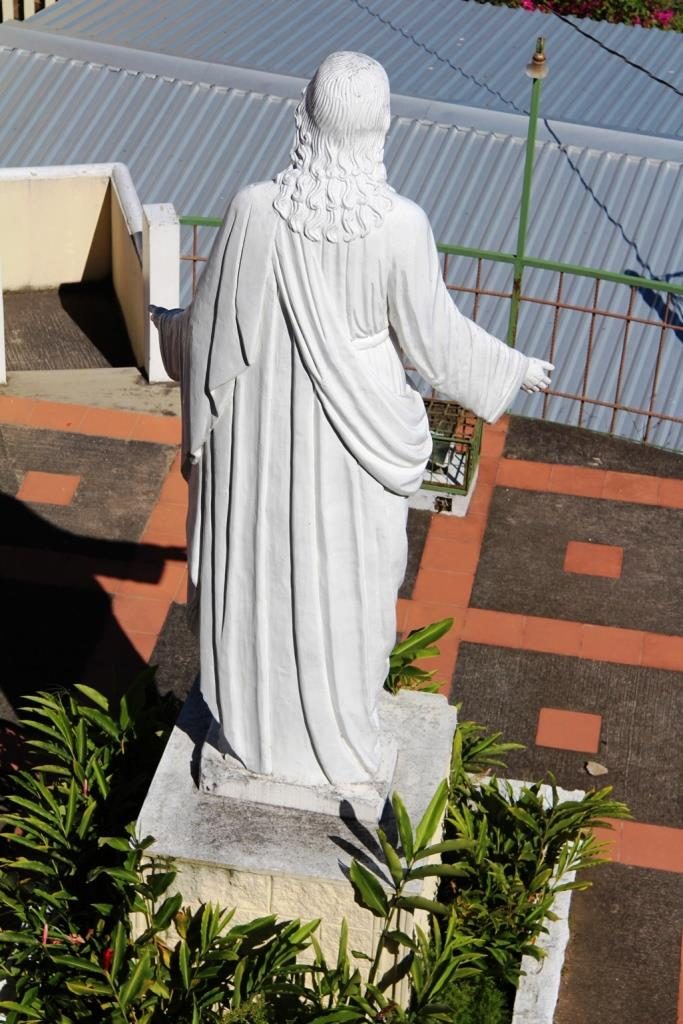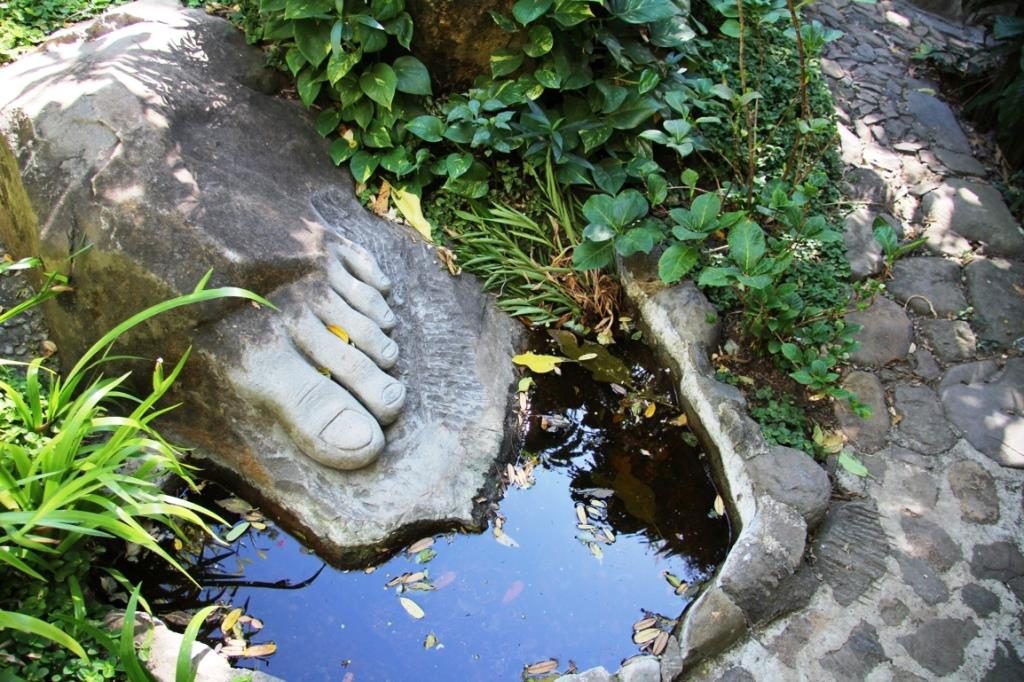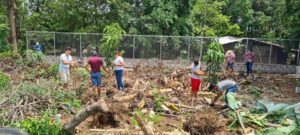MARIO MANCIA
(Storyteller’s name is a pseudonym for protection purposes)
“It was more painful for me to be without my son than to be locked up in prison.”
Esta historia se escribe en Español = This story is also written in Spanish here.
Editor’s Note:
Choices
Others who grow up living in a situation similar to Mario’s may choose to give up, become callous, or turn violent. Not Mario. He did not merely survive a horrendous childhood and terrifying young adulthood; he chose to remain resilient, uncapitulating, loyal, and goal-driven during those tough times, and now chooses to move ahead.
As a product of incestuous rape, Mario never had the opportunity to lead an innocent childhood. He had neither nurturing family members nor significant adults to guide him during his formative years. The lies, deceit, and violence at home forced him onto the streets when he was still young.
The consequences of Mario’s early life, coupled with an inept judicial system, sent him for twenty years into a corrupt prison system where violence among gang members is pervasive. Mario miraculously survived within three prisons, including a maximum-security facility. Even within the prison system his fellow inmates respected him as their spokesperson working for prison reform to improve conditions for the overcrowded situation.
What he has discovered after his release is even more disheartening than living among gang-run prisons. No one wants to hire an ex-con.
Yet Mario chooses to move forward. The love and devotion to his son is monumental in guiding his decisions and motivating him. His Christian faith gives him hope. He is determined to find employment in order to be a self-sustaining citizen of his country. He just needs someone to give him that chance.
As Don and I prepare to interview Mario with his friend beside him translating for him, we begin sharing the purpose of our historical memory project with him in terms of preserving his country’s history. He then gives us an in-depth synopsis of El Salvador’s history, including dates and connections between events past and present that demonstrate a broad knowledge. It is apparent we are dealing with a well-informed and extremely bright young man.
MARIO’S EARLY BACKGROUND: I am the product of rape. My mom was 17 when her step-father raped her. She, the oldest of the sisters in her house, was responsible for their care at that time. Two more children resulted from that same relationship. A total of nine children lived in our house; seven were by my step-father who I always thought was my legitimate father until my aunt and sister told me the truth when I was seven. My mother verified that and told me I was unwanted. Finding out this truth explained why I always felt I was treated differently from my siblings. It explained why I carried only my mother’s name and why my father refused to sign for me.
Poverty and violence were part of my everyday life. When I was born in 1974, the civil war was cranking up when I was young, and we suffered from hunger. Our family had minimal resources which meant most days having only one tortilla and salt to eat. I remember the States sending rice, beans, sugar, and salt during the war.
At the height of the civil war, it was common to witness victims of military assassinations on our street corner. You could see seven decapitated corpses and bodies chopped in pieces every day. We knew this wasn’t how life should be, but it was. We had family serving on both sides of the war, and through them we learned to use weapons to prepare ourselves because no one knew when the war would end.
Violence continued inside my home. My step-father was an alcoholic who mistreated my mother. It upset me, and one day when she was preparing for a shower, I saw he was ready to abuse her again. She ran behind the house trying to escape, and just as he was ready to hit her, I jumped up, intervening and begging him not to do it. I hugged him. This reaction surprised him, maybe caught him off guard, but it impressed him. What typically happened after my mom’s abuse was she took out her frustrations on us kids by whipping us with a belt. I didn’t understand at the time how the whole cycle of abuse perpetuates itself onto the next generation.
I was never wanted and I was abused. I remember asking God, “Why am I here?” There must be some purpose, but I still haven’t discovered it.
When I was 12-14 years old, this situation sent me to live on the street with a group of friends. We were not a gang, simply a group of kids in similar situations who sometimes lived on the street fending for ourselves by protecting one another and eating what we could for survival and sometimes going home. The streets were also unsafe, and when I was 15 a group of us were assaulted at gunpoint. I quickly pulled out my wallet pretending it was a gun while my friend was assaulted. The perpetrator ran away but a half hour later returned with three more guys. This happens every day in our country.
THE INCIDENT THAT SENT MARIO TO PRISON AND HIS SENTENCE:
In 1995 when I was 21 years old, a fight erupted among players of soccer teams. Four of us went to a park (later joined by two others) and attacked two of the other team’s members. One of my friends had a weapon and shot a member of the opposing side four times with it. A woman said she saw us there, so we ran. The police identified the corpse, and six months later we were arrested. The woman who witnessed the crime testified. The judgment was I was charged as an “unnecessary accomplice”. (Six were captured altogether; three were released.) Three of us were sentenced to 30 years in prison. As an unnecessary accomplice I received the same sentence as the person who pulled the trigger. Of the other three who were set free, one was a minor, one was later arrested and died on the streets, and another awaiting trial left for the U.S. No investigation of this case took place. The judge took the word of the one witness. There are no scientific labs in El Salvador to test for proof; no ballistics tests of the weapon occurred. The public defender made no effort to get my prison term reduced because it was my first offense. (That is a typical method to get kids off the streets in El Salvador.) I should have received a 15-20 year sentence as an accomplice if my rights were not violated. The law “on the books” also provides for getting out five years early if the prisoner participates in qualified labor and sports programs, which I did. However, that law is apparently never put into practice. The prison system is fraught with inconsistencies and violations, especially for youth without legal representation.

LIFE WITHIN PRISON:
Two or three murders a day by prisoners using knives and machetes were common when I arrived at La Esperanza Prison, more commonly called “Mariona” or “the Inferno” by the media. Wars between groups for control of a prison make it obligatory to align yourself with one side or the other in order to survive. Riots and massacres are commonplace. I learned Tae kwon do in order to protect myself.
Human rights violations are rampant both inside and outside the prison. Ultimately the director of prison wardens is responsible for what happens inside prisons. We inmates staged a rebellion against the security by refusing to be locked up for seven months. I had been in the prison for 10 ½ years so was one of the group of 12 selected to be spokespersons to represent the inmates. We sent a letter with our concerns to the national director of prisons. These were for positive improvements for the prisoners. For example, one of our requests was asking for classroom space for the computer area to meet in rather than outside under a tree. Unfortunately our pressure for positive changes only created in the eyes of the staff negative perceptions for those of us trying to create improvement.
On April 8, 2006, the army and special police forces came in shooting rubber bullets and tear gas, forcing everyone back into their cells. After that, eight of our group of twelve, including me, were transferred to maximum security prisons.
(The irony is that some of our requests were met. A computer classroom did open inside. The prison gained a new warden, and other personnel changes, including a new doctor, also took place. Some suspicious mis-medications and suspicious deaths took place during the previous doctor’s tenure.)
Zatecoluca Prison is the maximum security prison in which I served. Inmates spend 23 hours and 40 minutes seven days a week in tight quarters. There were two to a cell but now three or four are crammed into a cell. A prison designed for 800 inmates, now holds 5,000 inmates. I was in maximum security for four years despite the law saying only 10% of my sentence could be served there.
After my time in maximum security, I went to Apanteos Prison in Santa Ana for six years.
Rival gangs always tried to attack me in prison, but I stood my ground. During my time in prison, I continued my high school education and took whatever trade classes they offered, including bakery and metallic structures.
I would not allow my psyche to be affected adversely by prison. My spirit was strengthened rather than broken. If I had allowed it to be broken, I would never have done anything in my life. I chose not to allow anything to break my spirit. I had too much to live for.

HOW I SURVIVED IN PRISON – BECOMING A CHRISTIAN: In prison I became a Christian after my mom converted to the gospel and began visiting me in prison. At first I listened to my mom talking about the Word of God when she visited me in prison simply to be polite. I didn’t really understand her. She brought me a Bible which I began to read, and later I accepted Christ in my life. We held a daily worship service among the 12 cells on the one side and 11 on the other side. It was optional for those who wished to join us. At one point there was someone who wanted to kill one of us, and three of us talked and decided we would not allow any of us to get hurt. As a Christian I was radical; I fasted and prayed over this threat of an attack. At the time of the attack, I armed myself with a weapon, but instead of attacking, I grabbed a desk to protect ourselves defensively. The police heard the noise and came and separated each of us to our own sectors and instructed the director to keep us separate.
Christ gives me strength to continue. God will touch someone’s heart to be able to help me sometime. I developed self-control in jail because I lived with problems every day in jail and had to put a stop to the aggression around me. I’ve learned to meditate before acting and to weigh the pros and cons of every decision.

MOTIVATED BY THE LOVE OF MY SON – SAMUEL: (This segment regarding Mario’s son is filled with intermittent periods of tears that Mario keeps apologizing for. Clearly his son is the center of Mario’s world whom he lives and breathes for.) I have an 18- year old son, Samuel, who was born one and a half years after I went to prison. It has been more painful for me to be without my son than to be locked up in prison. His mother was 17 when we conceived him. When he was 3 years 8 months, his mother took him to the U.S. He had lived with my parents until then. They used the same coyote that my sister used to get to the U.S. Samuel has a chance to become a U.S. citizen. His mother left to make sure he had a better life, and, thanks to God, that’s how it has been. He is there enjoying what his mother sacrificed for him. He is studying hard and taking advantage of his opportunities; he doesn’t have vices. He goes to church like his mother and as I always encourage him to do. Samuel’s mother has re-married, and they have other children. I am happy Samuel has a chance for a good life. He has not traveled to El Salvador due to the economy but would like to come after he graduates from high school. We talk every morning when I send my blessings to him for a good day. Samuel is working part-time to send me money to help me. For me to leave prison on parole early (out in 20 years rather than 30), I needed to pay my civil responsibility. I would need to pay that back if I left now. I would love to be with him, but I am required to report to a parole officer every three months until 2026. If I fail to do so, I will be sent back to prison to finish serving the remaining ten years of my prison sentence.
I have always had a wonderful relationship and excellent communication with my son. He is half of my life! I suffered in maximum security because I could only call him every two weeks for five minutes and could see him every two weeks when my mom brought him. His mom sent money to cover travel expenses to make sure he could visit me. She and I also maintain a good relationship and continue to communicate. If God gives me life until July, I hope to see Samuel after he graduates. That is what I desire. He is working to save for plane fare to come here. Knowing the terrible life I led with my own stepdad beating my mom, I would have liked to have given him a different upbringing.
FOCUSING FORWARD: I got out of my 30-year prison sentence in 20 years. It should have been sooner, but I got out three months ago. I finished high school and took trade classes in prison so that when I got out, I could find employment. No one wants to hire ex-cons regardless of how well-trained or how diversified their skills are. I can’t get a loan to begin my own business because no one wants to take a risk on me. I have skills, ability, and willingness to work, but no one is willing to take a chance on me. One war in our country has simply shifted to another war. I’m not going to live my whole life thinking my friends and family owe me anything. I want to be self-sustaining. I can’t establish a family without a job.
I never guessed the monsters I would face in my freedom would be worse than those in prison. I can’t wander around in the streets because, if I’m in a gang area, they will kill me. Anyone can stop me and ask for my DUI card*. I can’t even attend church in an unfamiliar area without it being problematic. I can worship God in my own home or my own neighborhood but nowhere else. [*The DUI card – document Unicode identidad- is the country’s national identification card. Its information such as address can tell gang members who may stop a person if you are in the wrong neighborhood!]
Finding a society that does not accept me and makes everything difficult for me despite my efforts to reform myself is hard to adjust to. Coming out of prison, I see some of the same elements I saw when I was a child during the civil war; it is discouraging. It seems nothing has changed on the streets in terms of its social problems despite all the efforts to improve things. Even seniors are no longer respected; elders were at least respected during the war. Scars and hatred in our hearts are difficult to heal. We are buried in social problems which politicians have the power to resolve but don’t.
There needs to be more intellectual and moral growth to resolve our social problems. We have some wonderful people and culture. Many more people could come to visit our country and enjoy them as well as our archeological sites, our warm climate, and our beaches.
I choose to look for positive solutions. Someone will help me find employment. Some groups will work for creative outcomes for our country’s social issues. I choose to be hopeful.
Editor’s Note: It has been three months since I met Mario. I remain fascinated by his positive energy and spirit despite all the adversity in his life. I hope someone reaches out to him to give him an employment opportunity.

MOVING FORWARD IN LIFE ONE STEP AT A TIME (sculpture from artist, Miguel Ramirez’ garden)


